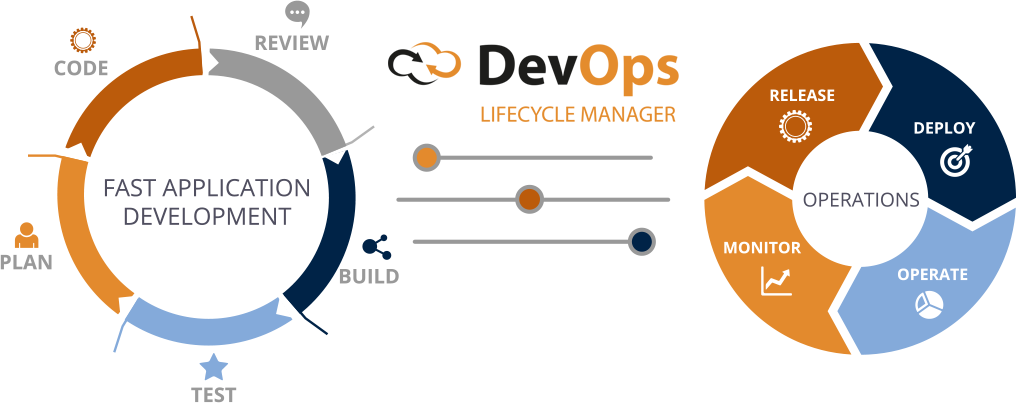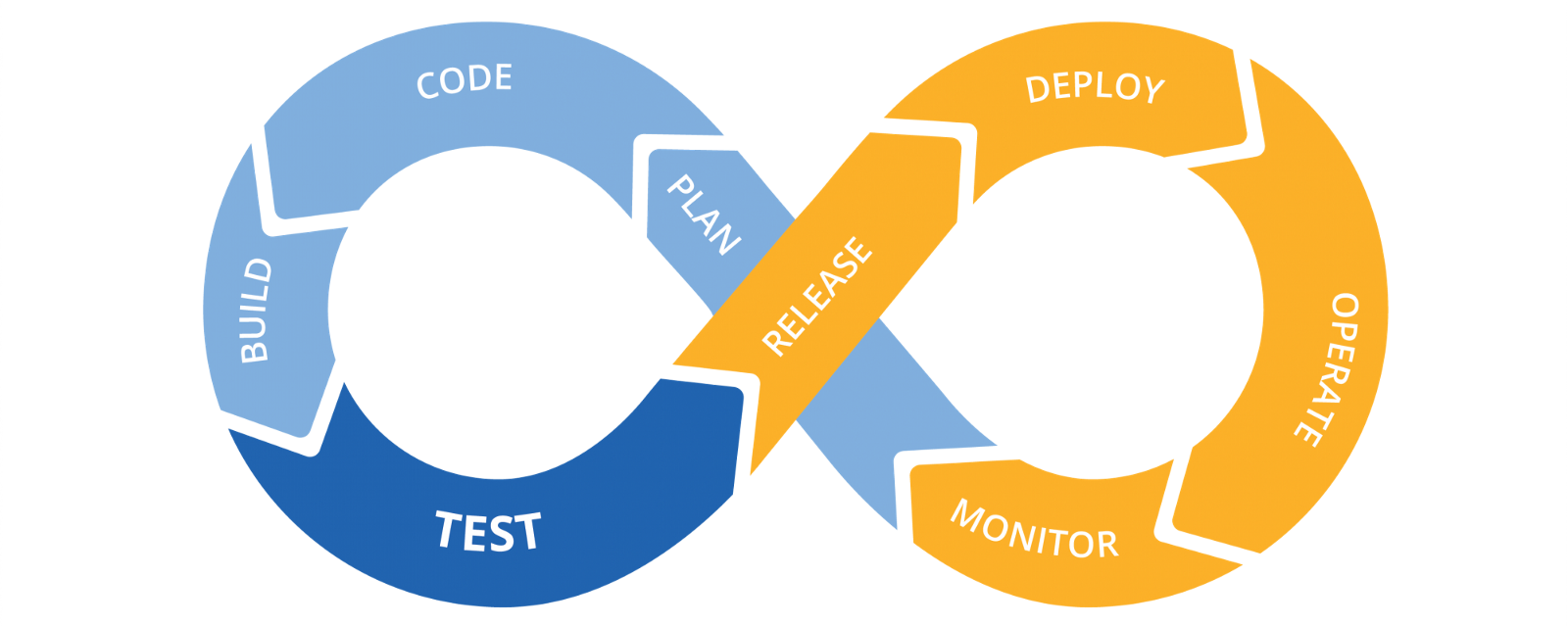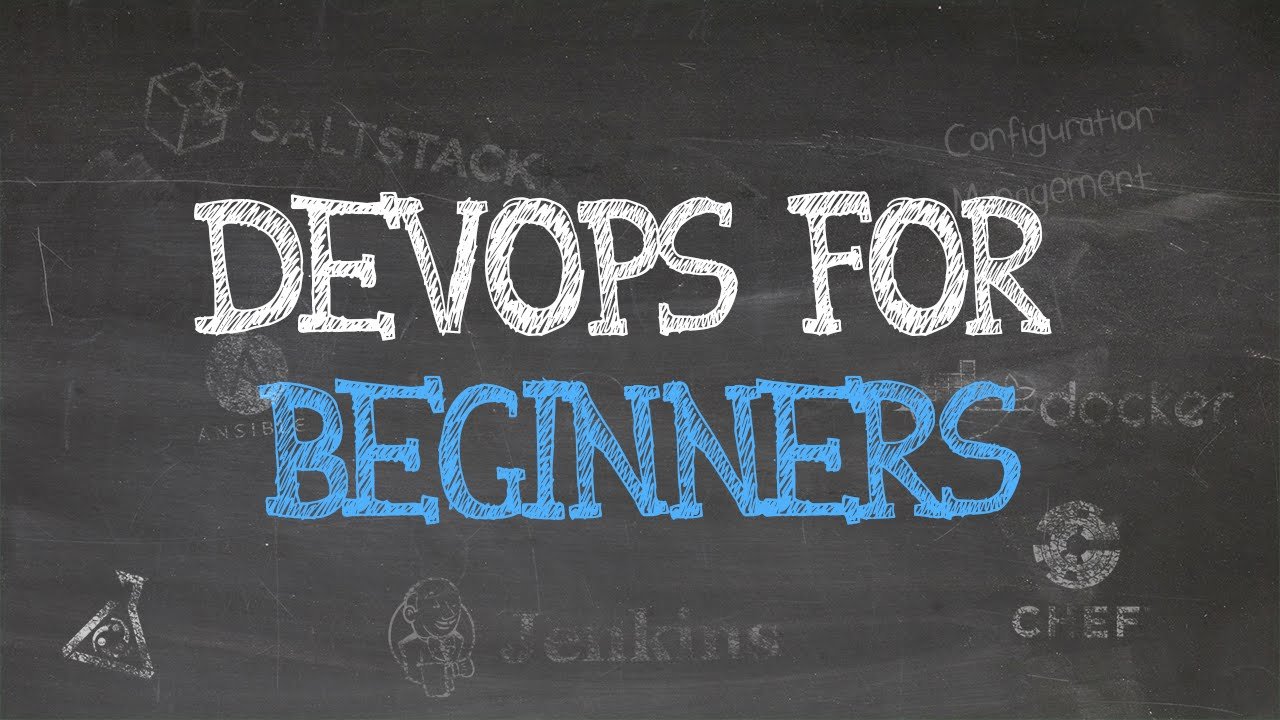DevOps is one of the most trending IT profession. That is why there is plenty of opportunities out there. As a result, pay scale even for junior level DevOps engineer is quite high. Approximate salary of Junior DevOps engineer in India is 11, 15,801 per year.
In this post, What DevOps is and why acquiring a basic understanding of its tenets is critical for advancing in today’s IT environment.
What is DevOps?
DevOps is a culture which promotes collaboration between Development and Operations Team to deploy code to production faster in an automated & repeatable way. The word 'DevOps' is a combination of two words 'development' and 'operations.' DevOps helps to increases an organization's speed to deliver applications and services. It allows organizations to serve their customers better and compete more strongly in the market.
In simple words, DevOps can be defined as an alignment of development and IT operations with better communication and collaboration.

Why is DevOps is Needed?
I. Before DevOps, the development and operation team worked in complete isolation.
II. Testing and Deployment were isolated activities done after design-build. Hence they consumed more time than actual build cycles.
III. Without using DevOps, team members are spending a large amount of their time in testing, deploying, and designing instead of building the project.
IV. Manual code deployment leads to human errors in production
V. Coding & operation teams have their separate timelines and are not in synch causing further delays.
Why is DevOps used?
DevOps allows Agile Development Teams to implement Continuous Integration and Continuous Delivery. This helps them to launch products faster into the market.
Other Important reasons are:
1. Predictability: DevOps offers significantly lower failure rate of new releases
2. Reproducibility: Version everything so that earlier version can be restored anytime.
3. Maintainability: Effortless process of recovery in the event of a new release crashing or disabling the current system.
4. Time to market: DevOps reduces the time to market up to 50% through streamlined software delivery. This is particularly the case for digital and mobile applications.
5. Greater Quality: DevOps helps the team to provide improved quality of application development as it incorporates infrastructure issues.
6. Reduced Risk: DevOps incorporates security aspects in the software delivery lifecycle. It helps in reduction of defects across the lifecycle.
7. Resiliency: The Operational state of the software system is more stable, secure, and changes are auditable.
8. Cost Efficiency: DevOps offers cost efficiency in the software development process which is always an aspiration of IT companies' management.
9. Breaks larger code base into small pieces: DevOps is based on the agile programming method. Therefore, it allows breaking larger code bases into smaller and manageable chunks.
When to adopt DevOps?
DevOps should be used for large distributed applications such as eCommerce sites or applications hosted on a cloud platform.
When not to adopt DevOps?
It should not be used in a mission-critical application like bank, power and other sensitive data sites. Such applications need strict access controls on the production environment, a detailed change management policy, access control policy to the data centers.
DevOps Lifecycle

DevOps is deep integration between development and operations. Understanding DevOps is not possible without knowing DevOps lifecycle.
Information about the Continuous DevOps life-cycle:
1. Development
In this DevOps stage the development of software takes place constantly. In this phase, the entire development process is separated into small development cycles. This benefits DevOps team to speed up software development and delivery process.
2. Testing
QA team use tools like Selenium to identify and fix bugs in the new piece of code.
3. Integration
In this stage, new functionality is integrated with the prevailing code, and testing takes place. Continuous development is only possible due to continuous integration and testing.
4. Deployment
In this phase, the deployment process takes place continuously. It is performed in such a manner that any changes made any time in the code, should not affect the functioning of high traffic website.
5. Monitoring
In this phase, operation team will take care of the inappropriate system behavior or bugs which are found in production.
DevOps Work Flow
Workflows provide a visual overview of the sequence in which input is provided. It also tells about actions are performed, and output is generated for an operations process.

Workflow allows the ability to separate and arrange jobs which are top-requested by the users. It also gives the ability to mirror their ideal process in the configuration jobs.
How is DevOps different from Agile? DevOps Vs Agile
Stakeholders and communication chain a typical IT process.

Agile addresses gaps in Customer and Developer communications

DevOps addresses gaps in Developer and IT Operations communications

| Agile | DevOps |
|---|---|
| Emphasize breaking down barriers between developers and management. | DevOps is about software deployment and operation teams. |
| Addresses gap between customer requirements and development teams. | Addresses the gap between development and Operation team |
| Focuses more on functional and non-functional readiness | It focuses operational and business readiness. |
| Agile development pertains mainly to the way development is thought out by the company. | DevOps emphases on deploying software in the most reliable and safest ways which aren't necessarily always the fastest. |
| Agile development puts a huge emphasis on training all team members to have varieties of similar and equal skills. So that, when something goes wrong, any team member can get assistance from any member in the absence of the team leader. | DevOps, likes to divide and conquer, spreading the skill set between the development and operation teams. It also maintains consistent communication. |
| Agile development manages on "sprints. It means that the time table is much shorter (less than a month) and several features are to be produced and released in that period. | DevOps strives for consolidated deadlines and benchmarks with major releases, rather than smaller and more frequent ones. |
DevOps Principles
Here, are six principles which are essential when adopting DevOps:

1. Customer-Centric Action: DevOps team must take customer-centric action for that they should constantly invest in products and services.
2. End-To-End Responsibility: The DevOps team need to provide performance support until they become end-of-life. This enhances the level of responsibility and the quality of the products engineered.
3. Continuous Improvement: DevOps culture focuses on continuous improvement to minimize waste. It continuously speeds up the improvement of product or services offered.
4. Automate everything: Automation is a vital principle of DevOps process. This is not only for the software development but also for the entire infrastructure landscape.
5. Work as one team: In the DevOps culture role of the designer, developer, and tester are already defined. All they needed to do is work as one team with complete collaboration.
6. Monitor and test everything: It is very important for DevOps team to have a robust monitoring and testing procedures.
Who is a DevOps Engineer?
A DevOps Engineer is an IT professional who works with software developers, system operators, and other production IT staff to administer code releases. DevOps should have hard as well as soft skills to communicate and collaborate with development, testing, and operations teams.
DevOps approach needs frequent, incremental changes to code versions, which means frequent deployment and testing regimens. Although DevOps engineers need to code occasionally from scratch, it is important that they should have the basics of software development languages.
A DevOps engineer will work with development team staff to tackle the coding and scripting needed to connect elements of code, like libraries or software development kits.
Roles, Responsibilities, and Skills of a DevOps Engineer
DevOps engineers work full-time. They are responsible for the production and ongoing maintenance of a software application's platform.
Following are some expected Roles, Responsibilities, and Skills that is expected from DevOps engineer:
I. Able to perform system troubleshooting and problem-solving across platform and application domains.
II. Manage project effectively through open, standards-based platforms
III. Increase project visibility thought traceability
IV. Improve quality and reduce development cost with collaboration
V. Analyse, design and evaluate automation scripts & systems
VI. Ensuring critical resolution of system issues by using the best cloud security solutions services
VII. DevOps engineer should have the soft skill of problem-solver and quick-learner


Comments (5)
What others are saying about this article
Amit Nayak
ReaderAbhishek Gupta
ReaderPiyush Kumar
ReaderAnjali Gupta
Readerinfycle tech
ReaderLeave a Comment
Share your thoughts and join the discussion